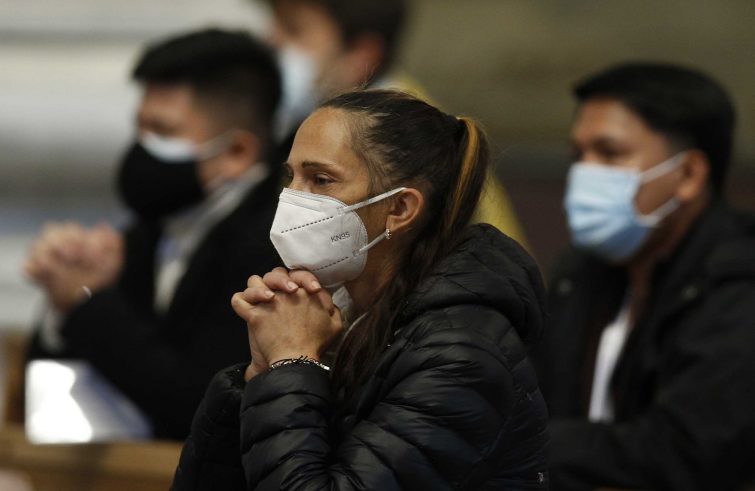
“Those who do not respect the poor betray Jesus’ teaching and cannot be his disciples.” This is the premise of the Pope’s Message for the World Day of the Poor, to be held on November 14 with the theme: “The poor you will always have with you”. (Mk 14:7). “Poverty is not the result of fate; it is the result of selfishness”, Francis writes, for “the poor, always and everywhere, evangelize us.” Our commitment “does not consist exclusively of activities or programmes”, not are we mobilized by “unruly activism”, reads the Message. We must follow the teaching of Jesus, who “not only sides with the poor; he also shares their lot.” Indifference must be avoided, and we must embrace
“a mutual sharing of life that does not allow proxies”,
based on the awareness that the poor “are not people ‘outside’ our communities, but brothers and sisters whose sufferings we should share, in an effort to alleviate their difficulties and marginalization, restore their lost dignity and ensure their necessary social inclusion” through “mutual sharing” that “generates fraternity” instead of occasional almsgiving. The Pope’s Message equally mentions the condition of women: “Women, so often discriminated against and excluded from positions of responsibility, are seen in the Gospels to play a leading role in the history of revelation.”
“There seems to be a growing notion that the poor are not only responsible for their condition, but that they represent an intolerable burden for an economic system focused on the interests of a few privileged groups”,
Francis denounces.
“A market that ignores ethical principles, or picks and chooses from among them, creates inhumane conditions for people already in precarious situations.”
“We are now seeing the creation of new traps of poverty and exclusion, set by unscrupulous economic and financial actors lacking in a humanitarian sense and in social responsibility”, Francis remarks. Moreover, last year we experienced “yet another scourge that multiplied the numbers of the poor”: the pandemic, that caused the poor “to increase disproportionately and, tragically, they will continue to do so in the coming months.” “Some countries are suffering extremely severe consequences from the pandemic, so that the most vulnerable of their people lack basic necessities”, the current scenario: “The long lines in front of soup kitchens are a tangible sign of this deterioration”, the Pope writes, for whom “there is a clear need to
find the most suitable means of combating the virus at the global level without promoting partisan interests.”
In particular, reads the message, , “It is especially urgent to offer concrete responses to those who are unemployed, whose numbers include many fathers, mothers, and young people. Social solidarity and the generosity which many, thanks be to God, have shown are, together with far-sighted projects of human promotion, making a most important contribution at this juncture.”
“There are many forms of poverty among the ‘rich’ that might be relieved by the wealth of the ‘poor’, if only they could meet and get to know each other!”, is the appeal of the Pope, who calls for “a different approach to poverty.”
This is a challenge that “governments and world institutions need to take up with a farsighted social model capable of countering the new forms of poverty that are now sweeping the world and will decisively affect coming decades”, is the Pope’s recommendation, followed by a warning:
“If the poor are marginalized, as if they were to blame for their condition, then the very concept of democracy is jeopardized and every social policy will prove bankrupt. With great humility, we should confess that we are often incompetent when it comes to the poor.”
“It is an illusion, which we should reject, to think that freedom comes about and grows through the possession of money”, Francis writes: “Serving the poor effectively moves us into action and makes it possible to find the most suitable ways of raising and promoting this part of humanity that all too often is anonymous and voiceless.” “It is not a question of easing our conscience by giving alms, but of opposing the culture of indifference and injustice we have created with regard to the poor”, Francis points out denouncing the fact that today, “in the more economically developed areas of the world, people are less willing than in the past to confront poverty. The state of relative affluence to which we have become accustomed makes it more difficult to accept sacrifices and deprivation. People are ready to do anything rather than to be deprived of the fruits of easy gain. As a result, they fall into forms of resentment, spasmodic nervousness and demands that lead to fear, anxiety and, in some cases, violence. This is no way to build our future.”


